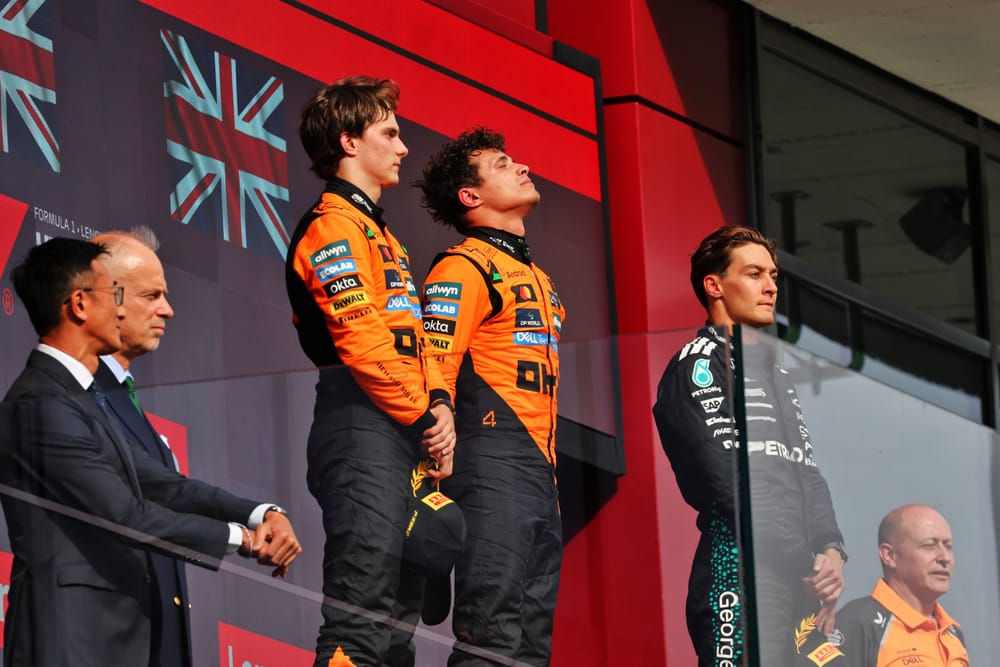McLaren boss Andrea Stella has said many times that his team has worked very hard to put itself in difficult situations in Formula 1.
After all, it is not all butterflies and unicorns when you have created a dominant car and have two drivers fighting closely for world championship glory.
So as debate rages about whether it was fair that Lando Norris was allowed the freedom to pull off the one-stop strategy that helped him beat Oscar Piastri to victory in the Hungarian Grand Prix, McLaren is well versed in the complications it finds itself in.
At the heart of the issue is a contradiction in that giving both drivers freedom to choose their strategies can be viewed as treating them equally, and yet at the same time be unfair to the one that ends up on the losing side.
Things are further clouded by an acceptance that no matter how determined the team is to be totally fair to both drivers, there are decisions that need to be taken that will not keep the interests of McLaren, Norris and Piastri all totally aligned.
As Stella told me at the end of last year: "I always discuss with the drivers that this is the most difficult thing we are going to face in our career. This is the only thing that we cannot face by having our interests exactly matching."
Those diverging interests have been laid bare by what happened in Hungary, as the team's quest to secure the race victory for Piastri ultimately opened the door for Norris to come through and win.
The Hungary decision
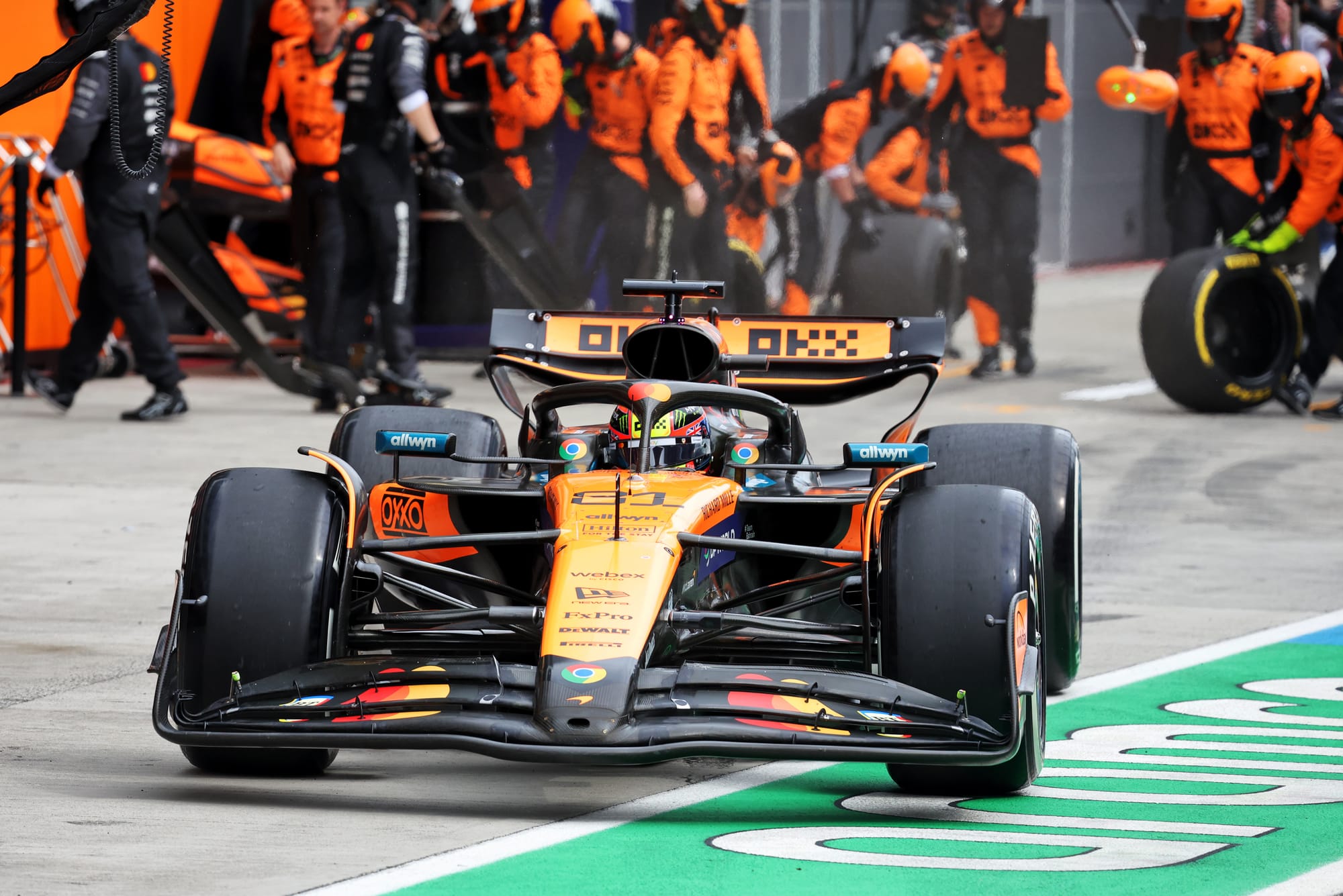
McLaren had been caught out by the fact that, at the time it pitted Piastri early to try to undercut leader Charles Leclerc's Ferrari, the one-stop did not seem to be a viable option at all.
The opportunity for Norris to go for it only really opened up after the leaders had taken their first tyre change, and it still then only became a definite winning strategy thanks to Leclerc's pace falling away in the final stint, and Piastri's penultimate lap move on his team-mate not coming off.
In hindsight, it is very easy to say that if Piastri had committed to a one-stop race then he would have won. But that is based on information that was not available to the pitwall at the time decisions were made.
As Piastri reflected himself afterwards, the one-stop route during the race appeared to be a gamble and not something that made sense for the lead car to do.
"I think we had to try and do something to beat Leclerc because it wasn't obvious that we just had enough pace to blow past him and go and win that way," he said.
"So, we tried something. Was it the right thing in the end? I don't know.
"But it's always much easier when you're the car behind to take that risk. For Lando, there was virtually nothing to lose by trying a one-stop race. For myself, potentially there was."
Strategy equality
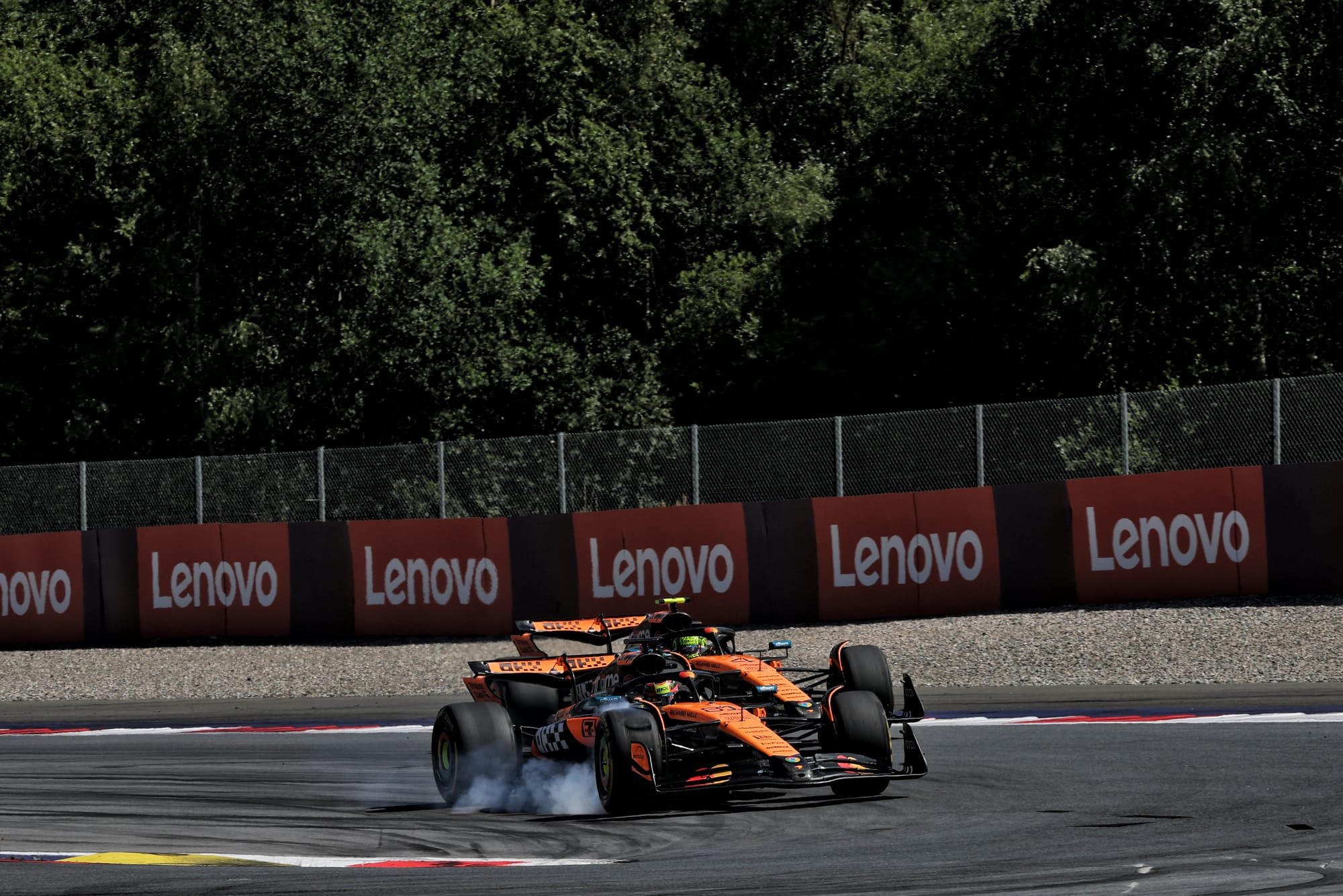
Had McLaren been in the reverse situation of Norris being ahead in Hungary, it is pretty safe to say it would have offered Piastri the one-stop option too. So this is in effect the equality that it is trying to offer both drivers.
Indeed, it has not been unusual this year for the McLaren driver running second to be offered the option of doing something different in a bid to try to pull the win off.
In Austria, Piastri's first stint was extended to try to give him fresher tyres later in the race.
In the Belgian GP, Norris switched on to the hard compound after the change to slicks while Piastri had opted for the medium.
And then in Hungary, this manifested itself in a more extreme fashion as a one-stop versus two-stop battle.
Sometimes these strategy offsets work (such as in Hungary), and sometimes they don't (see Austria and Belgium).
The lines between what is fair and unfair are therefore not easy to define.
Moving forward, the choice that McLaren needs to make to keep things totally equal – and this is one that it will have to agree with both drivers – is whether these strategy freedoms should remain as the title fight intensifies.
Do the pair of them want the strategies locked down so they are forced to stick to the same route? Should the second car be given no option to do anything different? Or should there be the freedom for both of them to do what they think is best for their own races?
It is only in laying out these discussions on the table – and agreeing in advance what the rules of engagement are – that McLaren can truly be sure that both drivers are getting the equal treatment they desire.
Lessons from the past
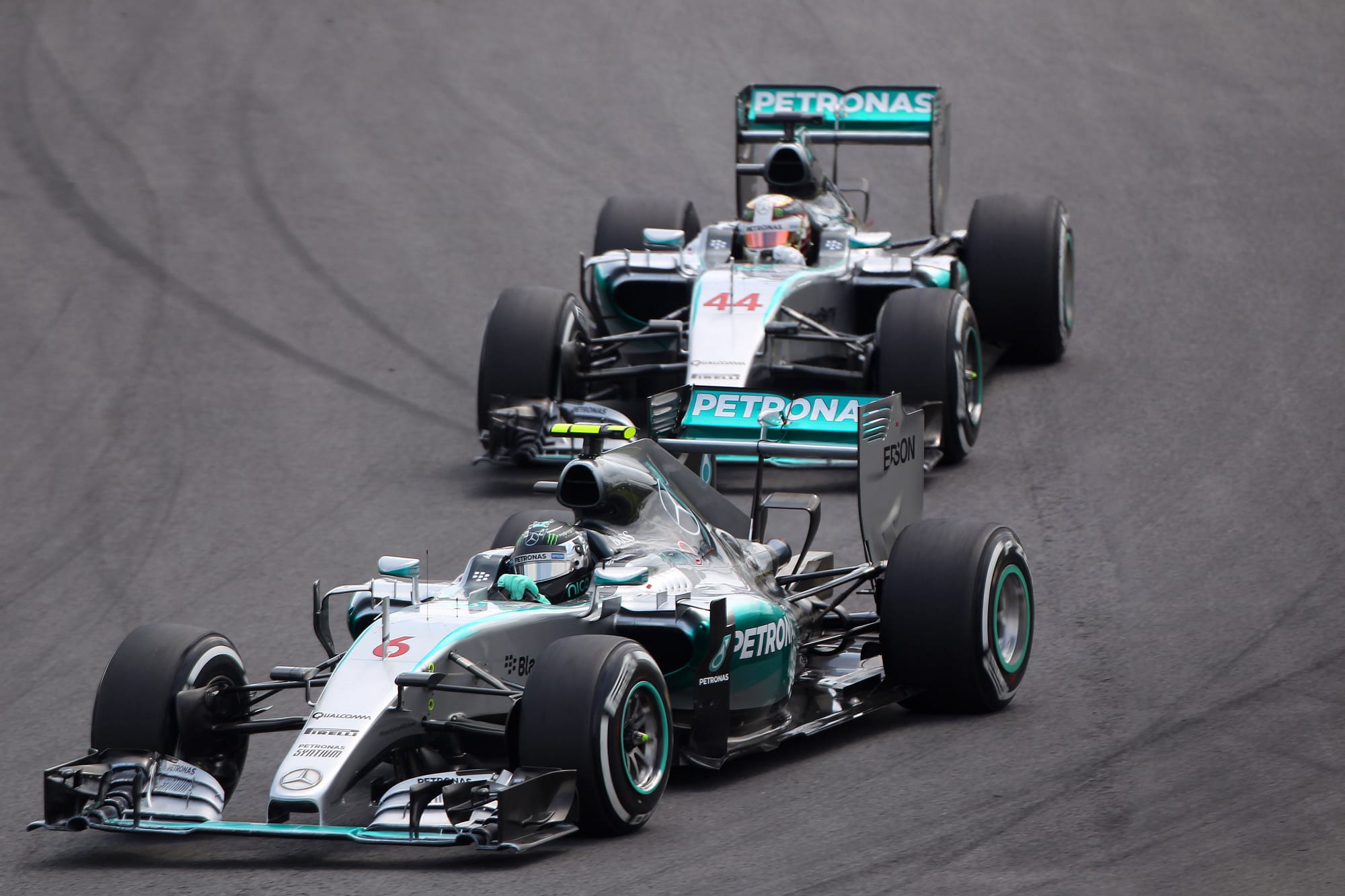
Looking back to the most recent intra team head-to-head we had for the F1 title, Mercedes initially operated a strategy with Nico Rosberg and Lewis Hamilton where the pair were not allowed to diverge on tactics.
The strategies were pre-committed and, even on days where it was not clear which was the best route to go, divergence was not really allowed.
This annoyed drivers at times (like Hamilton not being allowed to switch strategies to beat Rosberg at the 2015 Brazilian GP) and even cost it race wins (like when it didn't split the call and opened the door for Ferrari's Sebastian Vettel to win in Malaysia in 2015 - get early access to our Bring Back V10s episode about that race via The Race Members' Club on Thursday this week).
Even when the strategies were opened up – like the 2014 Hungarian GP when Rosberg started at the front and switched to a three-stopper against the two-stopping Hamilton who came from the back after a fire in qualifying – it only triggered controversy when this put them in positions to compromise each other.
Reflecting at the time about the possibility of allowing more strategy divergence on the days when things were not clear, Rosberg actually said that it was not something he liked very much.
"You do that because the strategies are really close and you're not sure which strategy is the better one," he said in 2015.
"Definitely I don't like that personally, because it's an artificial addition to our fight, it's not a fair fight after that for one or the other. So I don't like that.
"But that's the way it is, we're racing for Mercedes and in the first instance we need to win for Mercedes.
"Whenever they need to do that they will do it, and it's clear for us, so we accept that to make sure that we win."
McLaren pre-empting problems, and continuing to make it clear to both Piastri and Norris how things will be handled, will ultimately decide how fair a fight this can be.
Stella said last winter that when it comes to dealing with such conflict points where the ambitions of team and the individual driver are not fully lined up, it is a case of constant dialogue to ensure that everyone is on the same page.
"This cannot only simply be dealt with through, 'Oh, we had a really good conversation,'" he said.
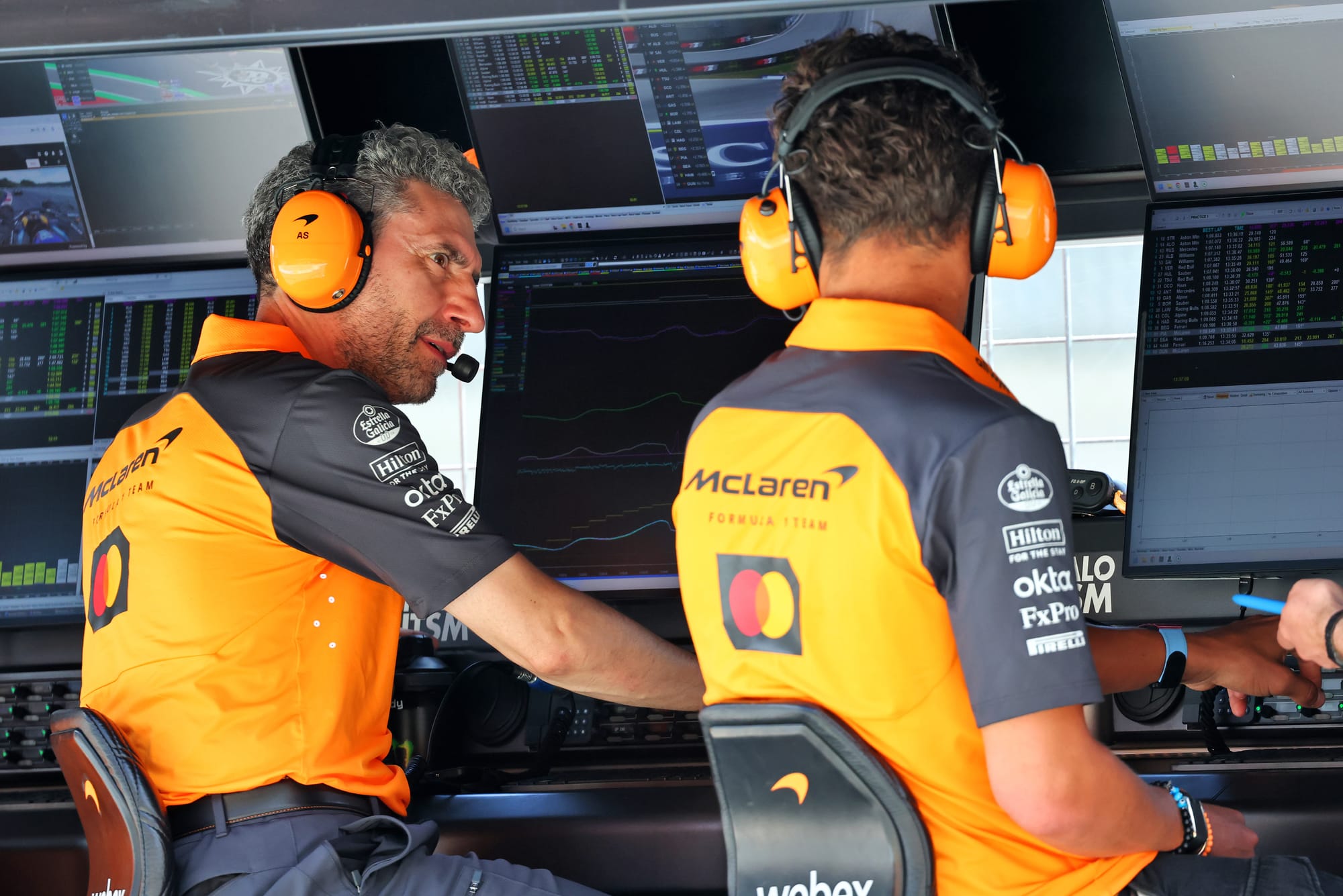
"You need many good conversations, and you really need to try and stay ahead of the game, because you want to be as preventative as possible as to what can happen while on track."
This is why Stella does not see a need for any radical rethink of how McLaren approaches strategies after the weekend.
Days like Hungary – when circumstances make the right strategy choice unclear and a gamble pays off – will likely happen again.
But fairness cannot be judged by the impact of the decisions made on Sunday afternoon; it comes from both drivers being absolutely crystal clear about what calls are allowed to be made.
As Stella said on Sunday night: "When we are deviating strategies, when we have different options, I think this is part of racing.
"We want to make sure that none of the drivers is surprised. And I think none of the drivers were surprised."


